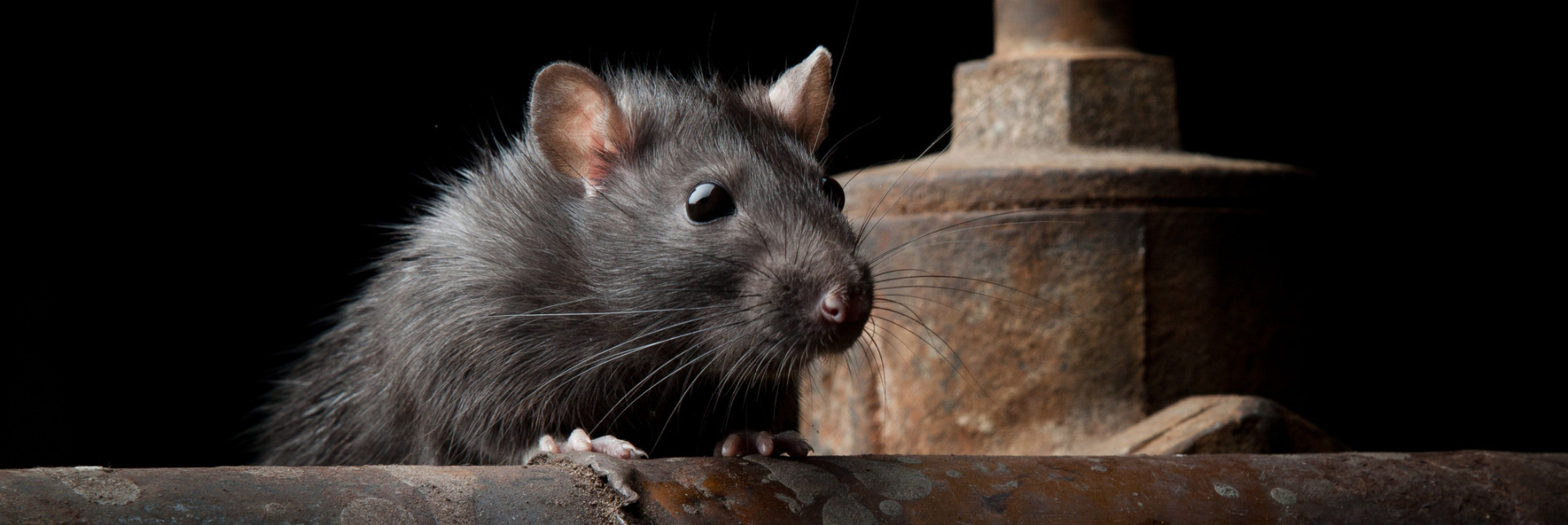Brown Rat (Rattus norvegicus)
Posted on 1st March 2019 at 08:29
The brown rat is the most common rat in the UK and goes by several different names including common rat, street rat, sewer rat, Hanover rat, Norway rat, Norwegian rat, Parisian rat, water rat or wharf rat.
The brown rat originated in China but is now the most common rat globally and can be found on nearly all continents. The brown rat is generally found living among humans, more so in urban areas where it can easily gain access to properties and food sources. The brown rat will feed on anything from food found within your home, to waste left outside for bin collections, food left out for birds and even dog or cat faeces.

When entering a property, the brown rat will be looking for suitable food sources as well as shelter or a suitable nesting spot. Brown rats are intelligent creatures and will find entry through the most unlikely of places. They are good climbers and will climb up and down walls providing they have enough grip. They are also fantastic jumpers, a brown rat can jump 120cm horizontally and upto 77cm vertically, making the jump between a fence or hedgerow onto your roof quite achievable. As a pest controller it is important that we look for both high and low entry points as there often can be more than one route into the home.
The brown rat itself can range in length between 15 to 28 cm for the head and body while the tail will range in length from 10.5 to 24 cm, the myth of “super rats” being the size of cats are usually exaggerations or misidentified.
The brown rat is a nocturnal creature mainly coming out at night to feed, brown rats are also amazing swimmers both on the surface and underwater which is why drains can be an issue when tackling a problem of rats and why in rare cases they can even appear in the toilet. Brown rats are keen burrowers, they will excavate vast burrow systems once they have established a suitable nesting site. This is often evidenced within the insulation in the loft space as they will tunnel into it to make burrows and tear up the insulation.
Brown rats are considered omnivores which basically means they will feed on just about anything, cereals and grain can be a preference which is why a lot of rodenticides are grain based however they will eat anything they can get at, including foods in your cupboards or anything left out on a work surface. I have personally found a rat feeding on dried noodles and spices left in a suitcase underneath a customer’s staircase, and a common sight in gardens in Reading and Berkshire is rats climbing up and eating out of bird feeders and bird tables.
Browns rats will breed throughout the year and can produce up to 5 litters, each containing up to 14 young if the conditions are right. The female’s gestation period is only 21 days and she can become pregnant again almost immediately after giving birth. Females can become sexually active from about 5 weeks old, so with perfect conditions a rat population can grow on a massive scale in a relatively short space of time.
Brown rats will live within hierarchical groups, these can be either in burrows or within sewers in your home and business. When finding food becomes a problem lesser rats within the hierarchy are the first to die, this can be from lack of food or from taking greater risks to obtain food.
Brown rats, like most rodents, are able to carry many diseases including Weil's disease, rat bite fever, cryptosporidiosis, viral haemorrhagic fever, Q fever and hantavirus pulmonary syndrome.
Brown rats do not have very good eyesight so when moving around, especially at night, they will use their sense of smell and slightly longer guide hairs on the body to assist them.
If you have a problem with rats don’t hesitate to contact us here at Abbey Pest Control.
Covering: Reading, Tilehurst, Caversham, Wokingham, Shinfield, Woodley, Newbury, Chieveley and Thatcham areas our price includes a full survey, written report, all labour and materials. All of our operatives are fully trained, experienced members of the NPTA and we have comprehensive public liability insurance.
Call now: 07525 850347
Email: abbeypestreading@gmail.com
Tagged as: Berkshire, Calcot, Caversham, Newbury, Rats, Reading, Rodents, Shinfield, Thatcham, Tilehurst, Wokingham, Woodley
Share this post:






